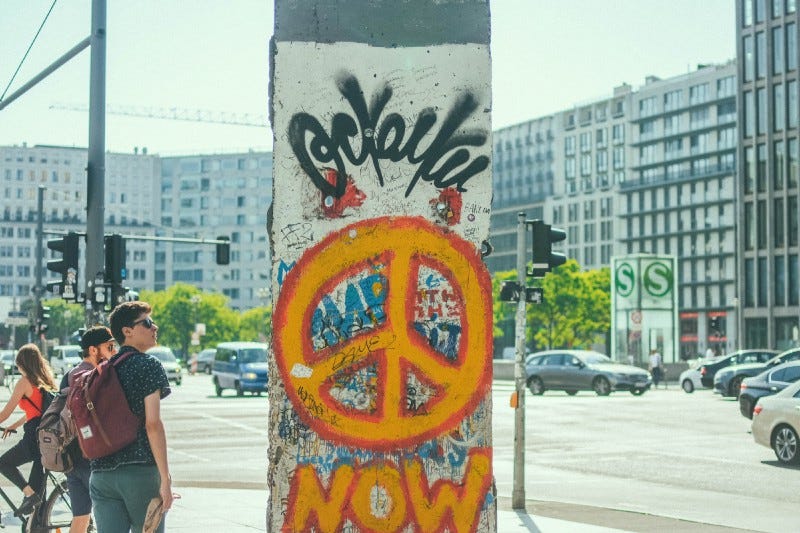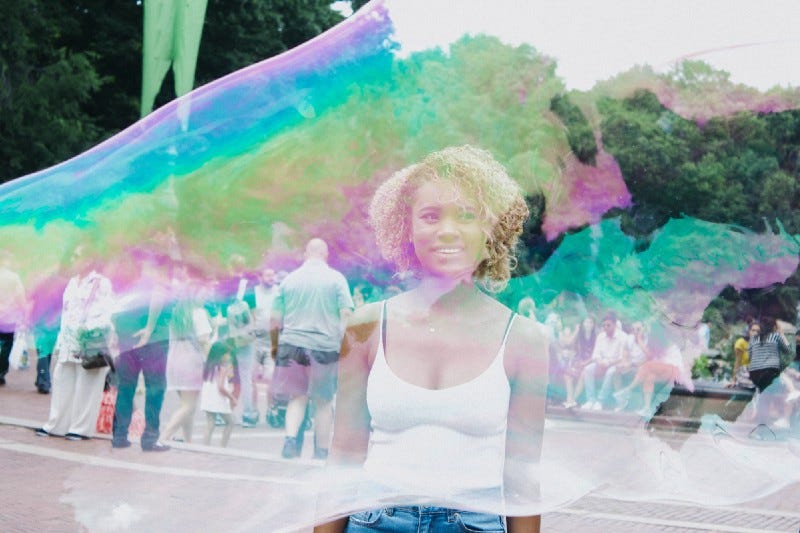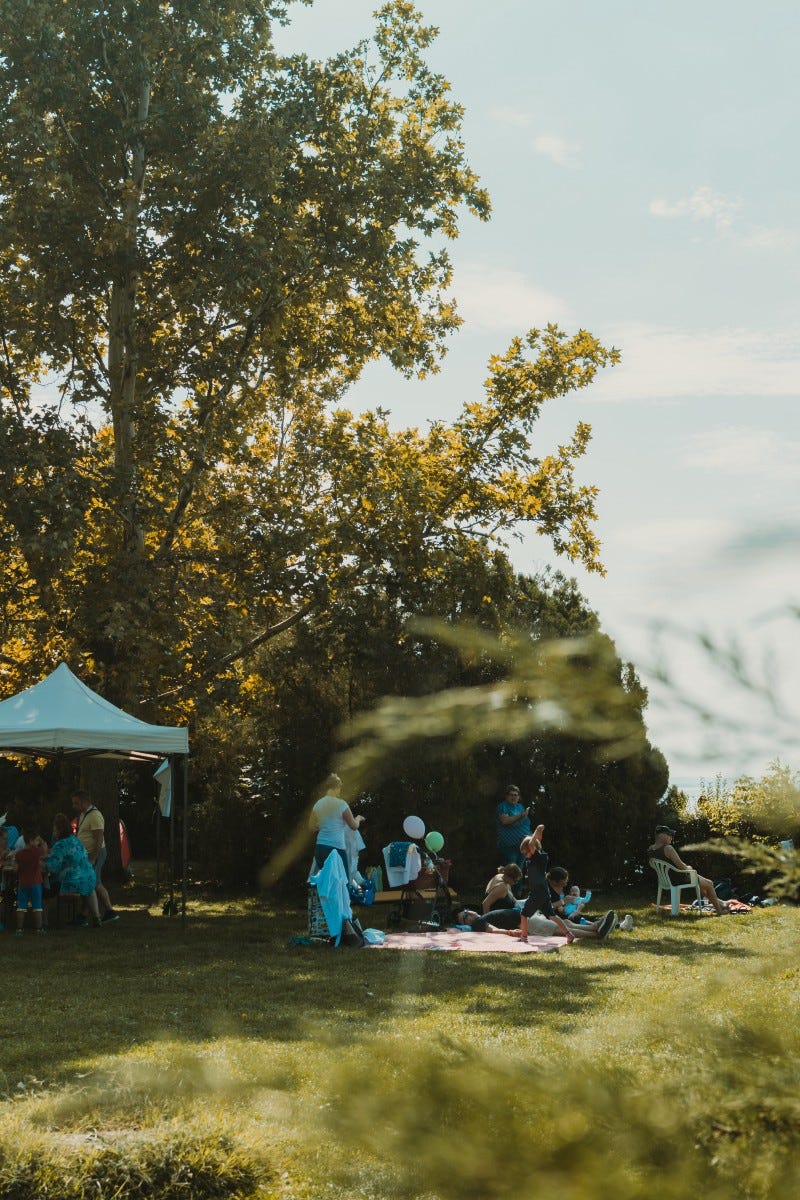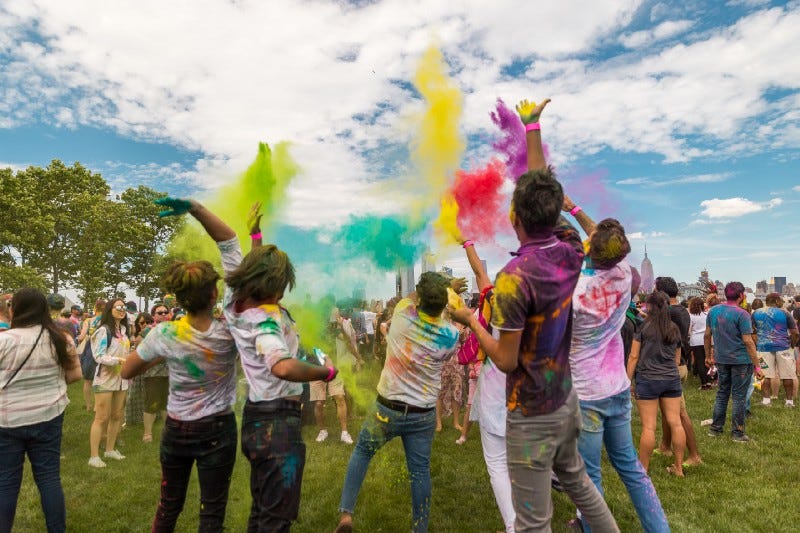Hippies Were Better at Feeling than We Are
3rd and final part of the Hippy Series: music, joy, freedom, mysticism
As the subtitle suggests, this is the last part of a broader essay about history’s most blissed-out generation. It can also be read alone if you like reading things alone.
Part 1, which focuses more on politics, is here. Part 2, which focuses more on peace ‘n’ love ‘n’ morality, is here.
‘We were talking about hippy music.’
‘Ah, the music. Wild, ebullient, unashamedly melodic. You don’t hear the Sixties in the lyrics, you hear it in the notes — in the rhythms, the energy, the optimism and freedom. Black music has always had those things, but very little white music from Handel up to early rock ’n’ roll managed to combine all of them. And very little has since.’
‘I know you well enough to know that for you “Music has gotten worse” is the same as “Everything’s gotten worse”.’
‘Damn right. Music’s the most accurate cultural barometer there is. There’s been tons of incredible stuff from the mid-’70s right up to now, but it can’t make the same impact because the spirit that drove it in 1966 is dead. Take the innocence and spontaneity out of pop and you’ve taken away the animating principle of “Waterloo Sunset” and “Summer in the City”. They aimed for beauty with no self-consciousness, no caution, no fear of making a mistake. They had something to convey and they conveyed it.’
‘Did they though? A lot of the lyrics from the time, including the protest ones, are pretty indirect, nondescript — tame. The radio stations and record company executives made sure of that.’
‘But the stuff that made it into the albums was only hinting at the stuff people were really saying, and all the “hip” crowd knew it. Signalling to them in your lyrics became a kind of game bands would play. By the way, have you noticed how the slightest sex or drug reference in a good ’60s song is more exciting than the most provocative material we can come up with today?’

‘Depends on how you define “exciting”. To me any given Kendrick Lamar track is significantly more exciting and on point than any ’60s protest song you could name.’
‘Whereas to me Jim Morrison barking “She get high” is more thrilling than every drug reference of the last 20 years put together. Hell, the censored “She get [radio silence]” version is more thrilling. It’s rebellion that isn’t nihilistic, rebellion with a direction, utopian rebellion. Its aims weren’t realised, but in the 3 minutes you’re listening to “Break On Through” its aims are realised. The song shows you what highness feels like, what human potential sounds like. As I say, it’s really more about the notes and rhythms than the words — they flesh out every thought and make every sentiment ten times as grand as it has any right to be.’
‘The trouble is that you can only “break on through” once, and once you’ve done it there’s nowhere left to go.’
‘Right. Nothing’s shocking now, so even if modern lyrics objectively “go further” than old ones — and they don’t, because they don’t have a mystical dimension — then they can’t convey the same sense of newfound freedom. Because music exists in a social context, it’s less exciting to hear extreme lyrics now than 50-year-old lyrics that sound tame today but would have been very shocking at the time. You’re imagining yourself hearing them for the first time back then. It’s sort of empathic listening, secondhand titillation.’
‘What did you mean just then about the “mystical dimension”?’
‘If the hippies have just one advantage over us it’s that we’ve abandoned spiritual joy. That applies to everything: not just music but music commentary, all writing, all cultural criticism. We decided to continue in the vein of the Velvet Underground and not the Doors, Robert Christgau and not Greil Marcus, Noam Chomsky and not Allen Ginsberg. Not dissing anyone in the list, but a trend’s a trend. Everything’s just become very hardheaded, angry and practical. You aren’t allowed wonder at things. You aren’t allowed feel awe.’

‘I would have to agree that “joy”, “wonder” and “awe” are words you’re only allowed use until you turn 12 or at Christmas.’
‘Right, and I can’t imagine anything more spiritually stunted. People will throw any flavour out of the cultural stew if it reminds them of Communion wine, and pretty soon all you’ve got is water. At some point people separated joy out from fun and said that only the second was worth aiming for. I don’t know why you can’t have both.’
‘And I don’t know what you’re talking about any more.’
‘Just watch Becoming Nobody. That’s joy. That’s freedom. Intellectuals-turned-mystics like Ram Dass and Alan Watts couldn’t have gained purchase in any other age than the ’60s: people were too straight-laced before and too cynical afterwards. They preached humour, fun, liberation and the transcending of the ego. That last one is important. The Boomer generation may have been the first to say the personal is political. But they also knew that neither the personal nor the political were everything. Rather than celebrating identity, the hippie mystics urged us to transcend it: become nobody. Not so we’d have less fun, so we’d have more. The point was to enjoy life without worrying about where you fit into it. So we didn’t have to be anything. We could just be. Total openness, total freedom. The fact that 99% of people hate and ridicule that mentality now without making the effort to understand it first…well, it’s just profoundly sad.’
‘You could argue that healthy skepticism is safer: better than being taken in by smooth-talking gurus, joining cults…’
‘Course it’s safer. But I like the idea of having heroes, of looking up to people — not because they’re virtuous or righteously angry, but because they’re radiant.’
‘I’ve always liked the word “radiant”. Seems like a good place to wrap things up.’

‘Fair enough. I’ll finish with this. The hippie movement wasn’t the most pragmatic, rational, organised thing in the world because that wasn’t the point. The point was to be. Specifically to be young, wild, free and happy — to free up your emotions and live your life. Asking people to turn all that Dionysian abandon into an Apollonian plan of action would be like asking Dean Moriarty to run for Congress. The movement was based on being younger than 30. When all its members hit 30 the movement died. You can’t hold onto your youth.’
‘Right. Whatever your feelings about hippyism, it was never going to survive undiluted.’
‘The things that were best about it were the same things that doomed it to fade away. It couldn’t have lasted, nor should it have — it was a beautiful moment, and beautiful moments don’t last. A holiday’s a holiday because you come home again. If you don’t come home the place you’re in becomes your home, and suddenly you’re no longer on holiday.’





